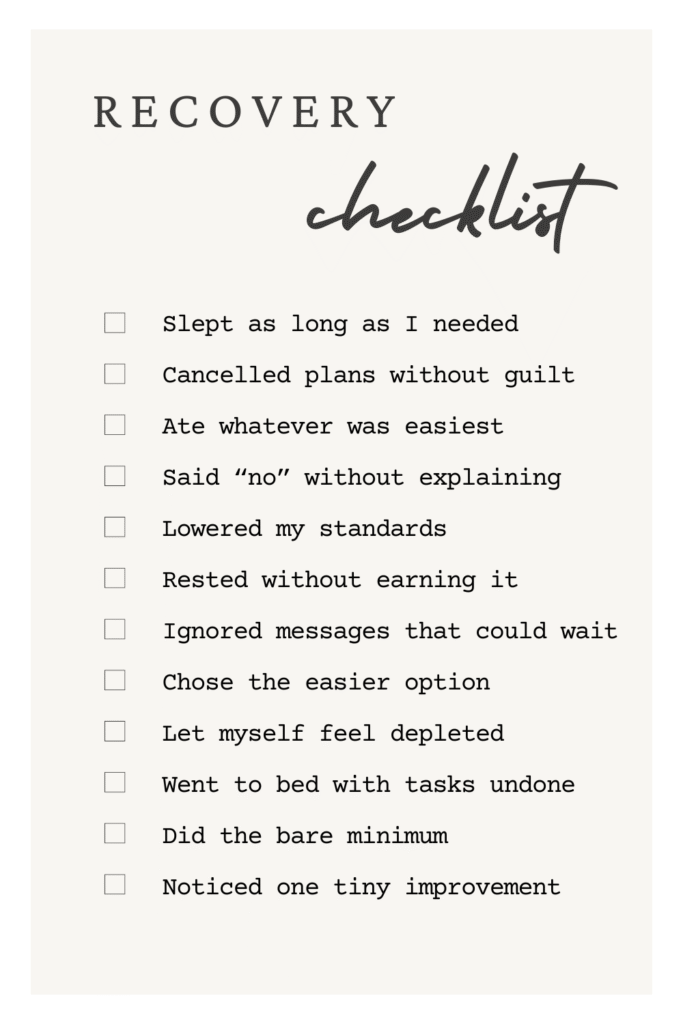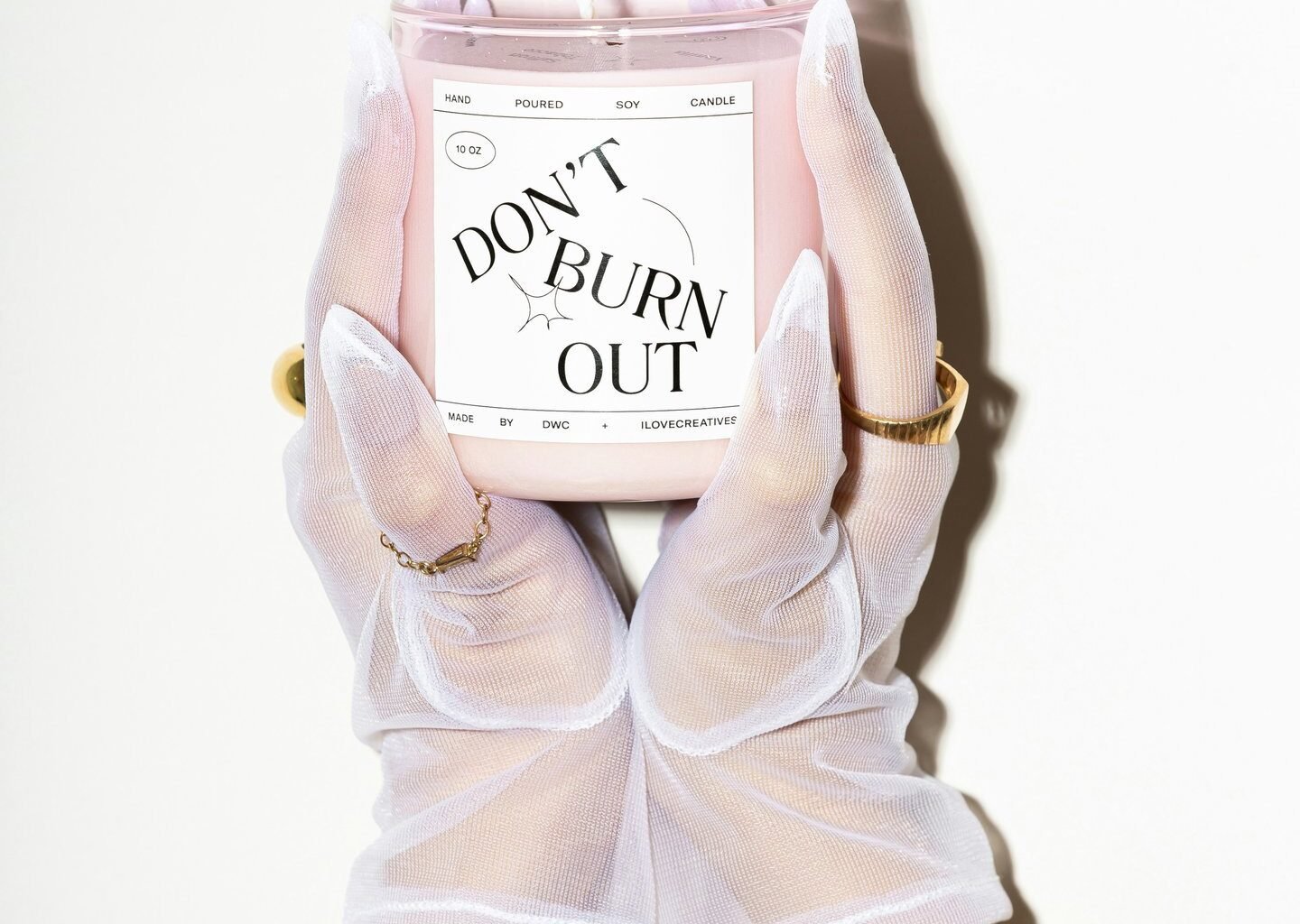You know you’re properly burnt out when the thought of adding one more thing to your day, even something pleasant, makes you want to cry. Someone suggests a relaxing bath and you can’t imagine finding the energy to run the water. Your partner recommends yoga and you want to scream because yoga requires getting off the sofa.
Burnout isn’t tired. Tired gets fixed with a good night’s sleep. Burnout is the bone-deep depletion that comes from months or years of pushing past your limits. It’s your body and brain staging an intervention because you stopped listening to smaller warnings.
The advice that helps when you’re overwhelmed or stuck won’t work here. You don’t need better systems or motivation hacks. You need permission to stop.
Why Standard Self-Care Advice Makes Burnout Worse
Here’s what happens when you’re burnt out and try to follow typical wellness guidance: you fail immediately, feel guilty about failing, then push yourself harder to “fix” it. Morning routines require energy you don’t have. Habit stacking assumes you have enough capacity to stack things. Optimisation frameworks demand mental bandwidth for optimisation.
Every piece of advice designed to help you do more efficiently just reminds you that you can’t do anything efficiently right now. The wellness industrial complex assumes baseline capacity. You’re operating below baseline.
Sarah tried this for three months. Downloaded the meditation app, bought the gratitude journal, set intentions every Sunday. By Wednesday, she’d abandoned all of it and added “can’t even do self-care properly” to her list of failures. The problem wasn’t Sarah. The problem was asking a depleted person to add things instead of remove them.
What Your Body Needs When There’s Nothing Left
Rest. Not productive rest. Not rest with a purpose. Not rest that moves you towards goals. Just rest.
Sleep longer than feels responsible. Cancel plans without offering alternative dates. Order takeaway instead of cooking the healthy meal. Watch television without simultaneously folding laundry. Lie on the floor doing nothing and call it a practice.
This sounds simple. It’s not. Because burnout comes with guilt that makes rest feel like failure. You’ll have the urge to justify it, earn it, make it count for something. Don’t. Rest without redemption is the practice.
Lower your standards until they’re embarrassing. Can’t shower? Baby wipes exist. Can’t cook? Cereal for dinner is fine. Can’t respond to messages? You don’t have to. Can’t be productive? Good. Productivity is what got you here.
The Permission You’re Waiting For
You’re allowed to stop. Not pause with the intention of restarting better. Just stop.
You’re allowed to disappoint people. Their expectations aren’t more important than your survival.
You’re allowed to do the bare minimum. Keeping yourself alive is enough achievement for now.
You’re allowed to need more recovery time than feels reasonable. Burnout doesn’t heal on your preferred timeline.
Nobody’s going to give you official permission to rest. The doctor might sign you off work, but who’s signing you off from feeling guilty about it? That signature has to be yours.
What Recovery Looks Like (Not What Instagram Says It Looks Like)
Recovery from burnout is boring. There’s no montage of inspiring moments. No before-and-after photos that make sense. Just weeks of sleeping more, doing less, and slowly remembering what having energy feels like.
You’ll know you’re improving when small tasks stop feeling mountainous. When you can shower without needing a nap after. When you can watch something and actually follow the plot instead of staring through the screen.
The timeline is yours. Some people need weeks. Some need months. Pushing to recover faster just extends how long recovery takes.
What This Looks Like Daily
Wake when your body wakes you, not when an alarm says you should. Eat when hungry, even if it’s the same meal three days running. Move your body only if it feels good, not because movement is “good for you.” Say no to everything non-essential, then say no to half of what you thought was essential.
Track nothing. Optimise nothing. Improve nothing. Just exist until existing doesn’t feel like an achievement.
This approach fails if you’re not burnt out. If you’re overwhelmed, stripping everything back won’t help because the issue is decision paralysis, not depletion. If you’re stuck in patterns, rest alone won’t break the cycle. If you’re starting fresh, you need building blocks, not demolition. (Read the main guide to work out which situation you’re in.)
When You Start Feeling Human Again
Don’t immediately rebuild everything you removed. Don’t sprint back to your old pace. Don’t assume you’ve “learned your lesson” and won’t burn out again.
Add one thing back. See how it feels. Wait a week. Add another if the first one didn’t cost too much. Build slowly from a foundation of rest, not from a platform of guilt about resting.
Some things you removed won’t come back. Some relationships won’t survive you having boundaries. Some commitments will stay cancelled. That’s not failure. That’s information about what was burning you out.

Not burnt out, but something else? Check out: Self-Care When You’re Overwhelmed | Self-Care When You’re Starting Fresh | Self-Care When You’re Stuck | Back to main guide
Rest without redemption is the practice. You don’t need to earn it, optimise it, or make it count for something.
